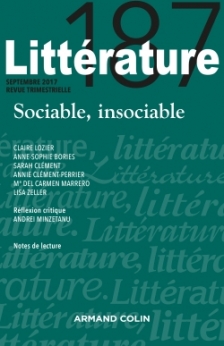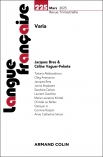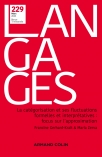
Littérature n° 187 (3/2017)
Pour acheter ce numéro, contactez-nous
Recevez les numéros de l'année en cours et accédez à l'intégralité des articles en ligne.
Mme de Tencin est avant la lettre une femme d’avant-garde intellectuelle et son salon a été l’un des premiers centres de sociabilité littéraire. Or si elle écrit pour acquérir un statut d’écrivain, elle a recours à l’anonymat pour conserver son statut de femme de condition. Dans son roman Mémoires du comte de Comminge, elle passe par le masque d’une écriture masculine pour y manifester ce qu’elle réclame pour elle-même: le droit de l’individu à décider de sa destinée.
Mme de Tencin was part of the intellectual avant-garde before her time, and her salon was one of the first centres of literary sociability. Yet, although she writes with a view to achieving the status of writer, she resorts to anonymity in order to preserve her status as a woman of condition. In her novelMemoirs of the Count of Comminge, she uses the mask of a masculine writing so as to express what she claims for herself: the right, as an individual, to determine her own fate.

